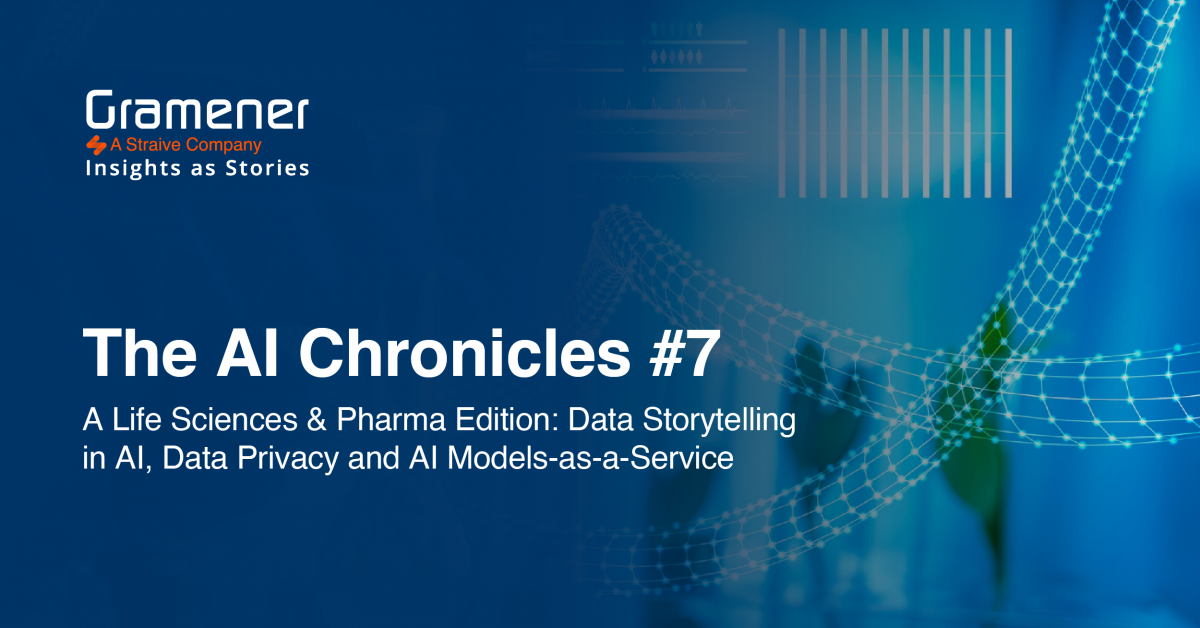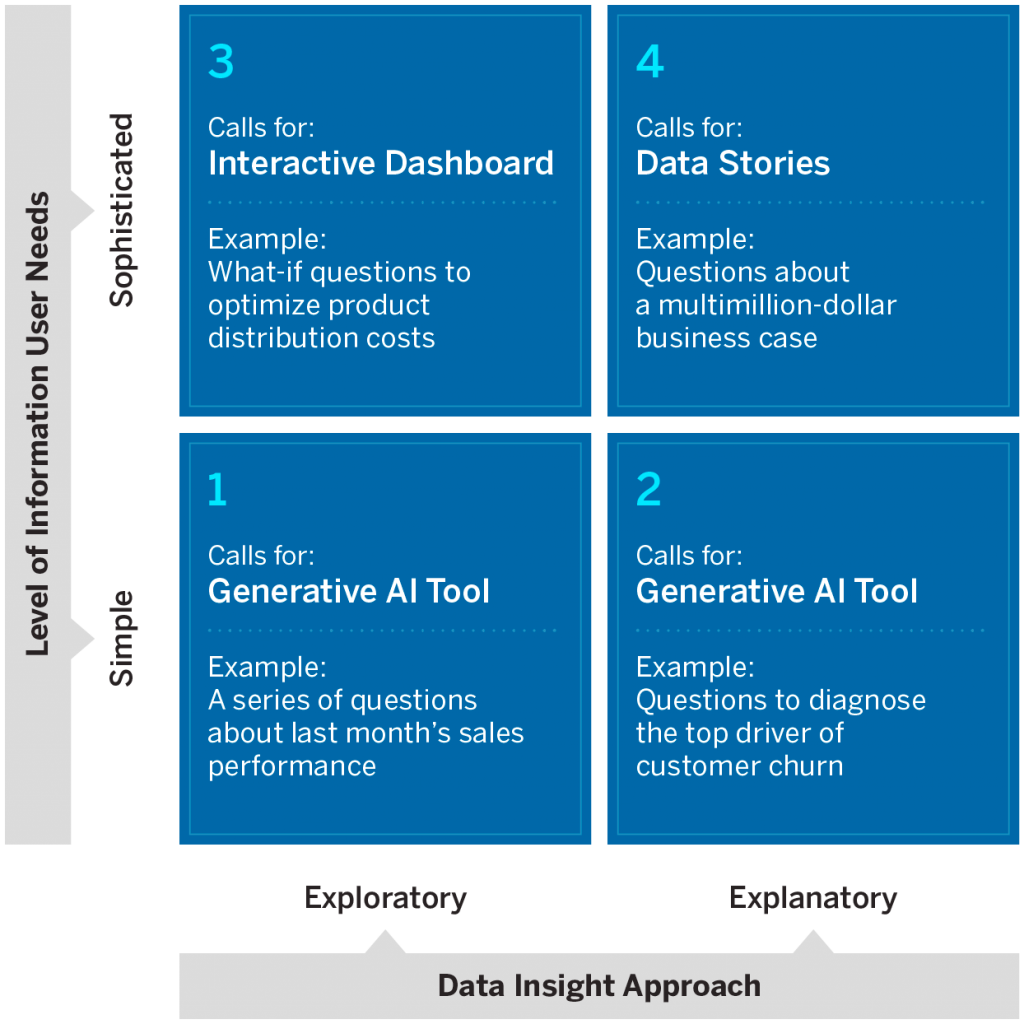We are back with the 7th edition of The AI Chronicles Series. This blog discusses AI Chat Tools, Interactive Dashboards, AI Models-as-a-Service, Microsoft’s Copilot, Meta’s Rufus, and Google’s Duet AI.
Table of Contents
Do check out the previous four editions of the series:
The AI Chronicles #1 – What’s hot in the pharma world with Generative AI, how to build robust patient data privacy, and what’s up with Apple’s AI-powered health coach?
The AI Chronicles #2 – McKinsey’s 5-step digital transformation for Pharma companies, Sanofi’s AI approach to employee productivity, and more on digitization of medical data.
The AI Chronicles #3 – Find content in images and videos with Microsoft’s Vector, Washington’s new health privacy law, and the importance of personalization in healthcare.
The AI Chronicles #4 – AWS’s HealthScribe – a GenAI-powered service, a Roche-sponsored report, and Pytrial – a GenAI tool for various clinical trial tasks
The AI Chronicles #5– GPTs, the EU Clinical Trials Information System (CTIS), Med-PaLM2, ClinicalGPT, PMC-LLAMA, and MedAlpaca.
The AI Chronicles #6 – Drug Prices, Regulatory Changes & Challenges, Market Conditions, Argument – Regulatory Oversight.
Let’s talk about our recent webinar first! So, following the success of our webinar last November on Generative AI in Pharma, we organized the next one specifically for pharma regulatory affairs leaders on how to leverage Generative AI in Pharma Regulatory Affairs.
Our special guest, Scott Sawler (Former DG of Marketed Health Products Directorate, Health Canada), interacted with Gramener’s Nutan B. and me on patient data privacy, GenAI, and pharma regulations.

The Enduring Power Of Data Storytelling In The Generative AI Era
What is it about?
Ganes Kesari at Gramener wrote a fantastic perspective in MIT Sloan Management Review on the Enduring Power of Data Storytelling in the Generative AI Era: Ganes eloquently argues that while generative AI tools can deliver insights through conversational interfaces, they cannot replace the visual display of information in certain decision-making scenarios. He presents a 2×2 matrix that helps leaders and their teams select the best tool for delivering information based on the data insight approach (explanatory or exploratory) and the level of information that users need (simple or sophisticated).
What does it mean?
As Ganes explains, AI chat tools, interactive dashboards, and data stories can be used effectively in different situations, such as when users need simple answers to dynamic questions, when users need to explore sophisticated insights with multiple factors, or when users need to present a nuanced data narrative with a lot of contexts. Generative AI can augment the data story life cycle by helping data scientists, analysts, and domain experts discover insights, create visualizations, and translate statistical summaries into business recommendations.
Data Privacy, EU GDPR, And Breaches
What is it about?
This article highlights a data breach that compromised more than 33 million people in France, approximately half the population, according to the country’s privacy watchdog. The data affects policyholders and their families and includes personal and contractual information. The data protection agency warned that the data could be used for phishing or other crimes. The data protection agency said it decided to very quickly carry out investigations to determine whether the security measures implemented by the health insurance companies were appropriate with regard to the GDPR obligations. If the companies are found to have failed, they could face hefty fines.
What does it mean?
Data breaches, especially in the healthcare sector, can have significant business implications. Healthcare organizations are subject to numerous laws and regulations that mandate the protection of patient data. Non-compliance can result in significant financial penalties and reputational damage. Healthcare data breaches can dramatically erode trust in healthcare providers. Their reputations, painstakingly built over the years, can suffer irreparable damage, leading to a loss of confidence among patients and the wider public.
Data anonymization, redaction, and privacy by design are crucial strategies for protecting sensitive healthcare data. Here’s how they can help. By embedding privacy practices into technology design from the outset, healthcare organizations can mitigate security risks, maintain compliance with regulations, and ensure the trust and confidence of their patients. Anonymization transforms personally identifiable data into a form that can no longer be linked to individual patients. This process maintains the utility of the data for research and analysis purposes, while significantly reducing the risk of re-identification.
AI Models-As-A-Service
What is it about?
This interesting article discusses how tech executives are telling investors that they must spend money to make money on AI, and where they are investing in AI initiatives and infrastructure. The demand for large AI models that clients can use and customize according to their needs continues to grow, such as Amazon’s Bedrock, Microsoft Azure, and Google’s Vertex AI. The article also mentions the importance of AI agents, or AI-powered productivity tools that can complete tasks for users, such as Microsoft’s Copilot, Meta’s Rufus, and Google’s Duet AI.
What does it mean?
Businesses must be prepared to invest in AI, as it’s a rapidly growing field with significant potential for return on investment. This includes financial investment and time and resources to understand and implement AI initiatives. AI agents can automate and streamline business processes, improving efficiency and productivity. Tools like Microsoft’s Copilot, Meta’s Rufus, and Google’s Duet AI can handle tasks ranging from coding assistance to customer service, freeing up human resources for more complex tasks.
The Gramener Take
With the rise of AI Models-as-a-Service, businesses can leverage pre-built models from tech giants like Amazon, Microsoft, and Google. These models can be customized to suit specific business needs, reducing the need for in-house AI expertise and accelerating the deployment process. As an Amazon and Microsoft partner, Gramener can help you leverage these pre-built models to adopt GenAI tools effortlessly. In addition, as a design-led data science company, Gramener helps you build data stories for your customers along with GenAI solutions. At Gramener, we believe that stories are memorable and viral and send an actionable message.
While a data story is often confused with a dashboard, it has an important distinction. As the name implies, data stories have a tailored narrative presented as visual insights, with takeaways to help users act.
Adopt GenAI with us.


